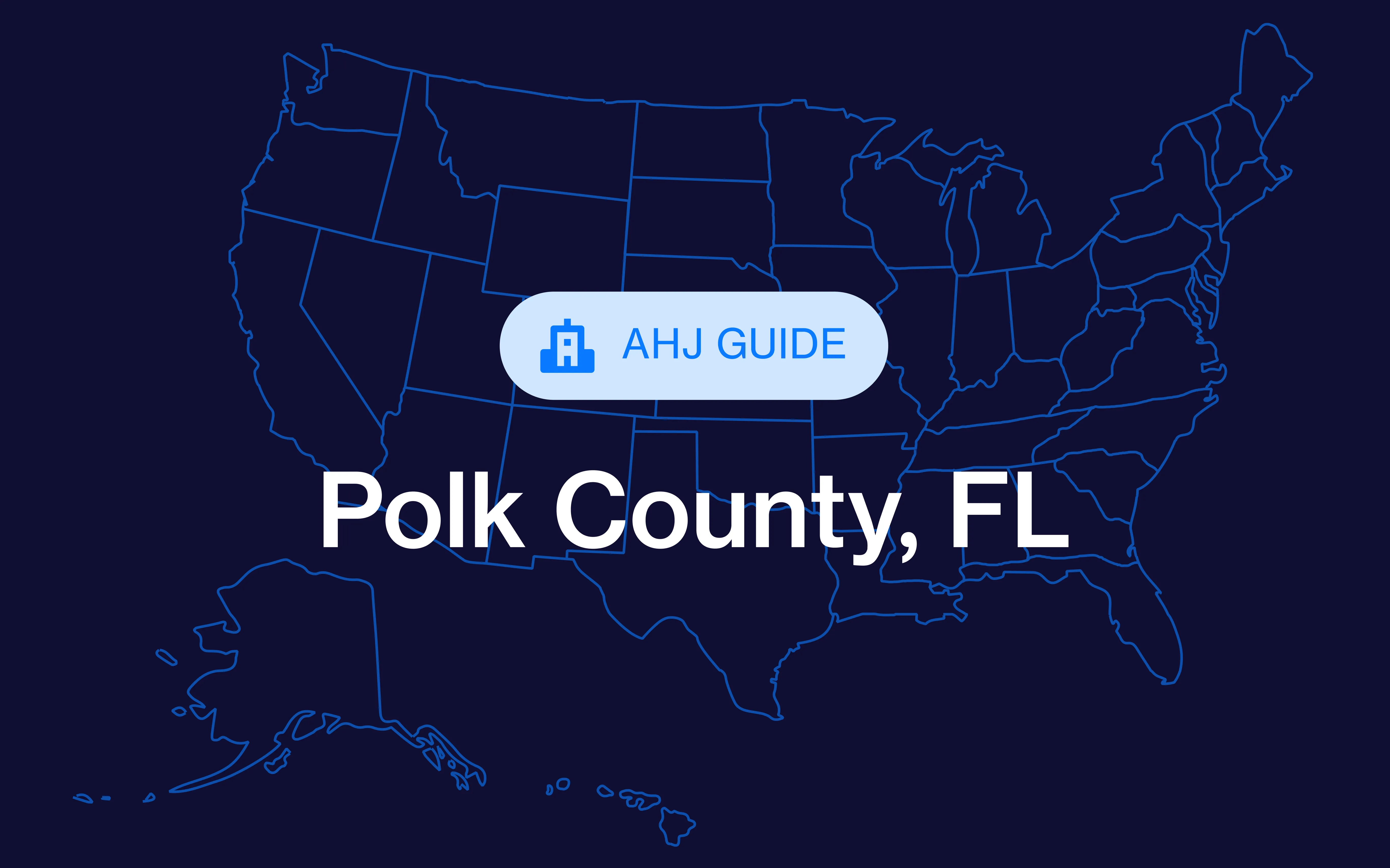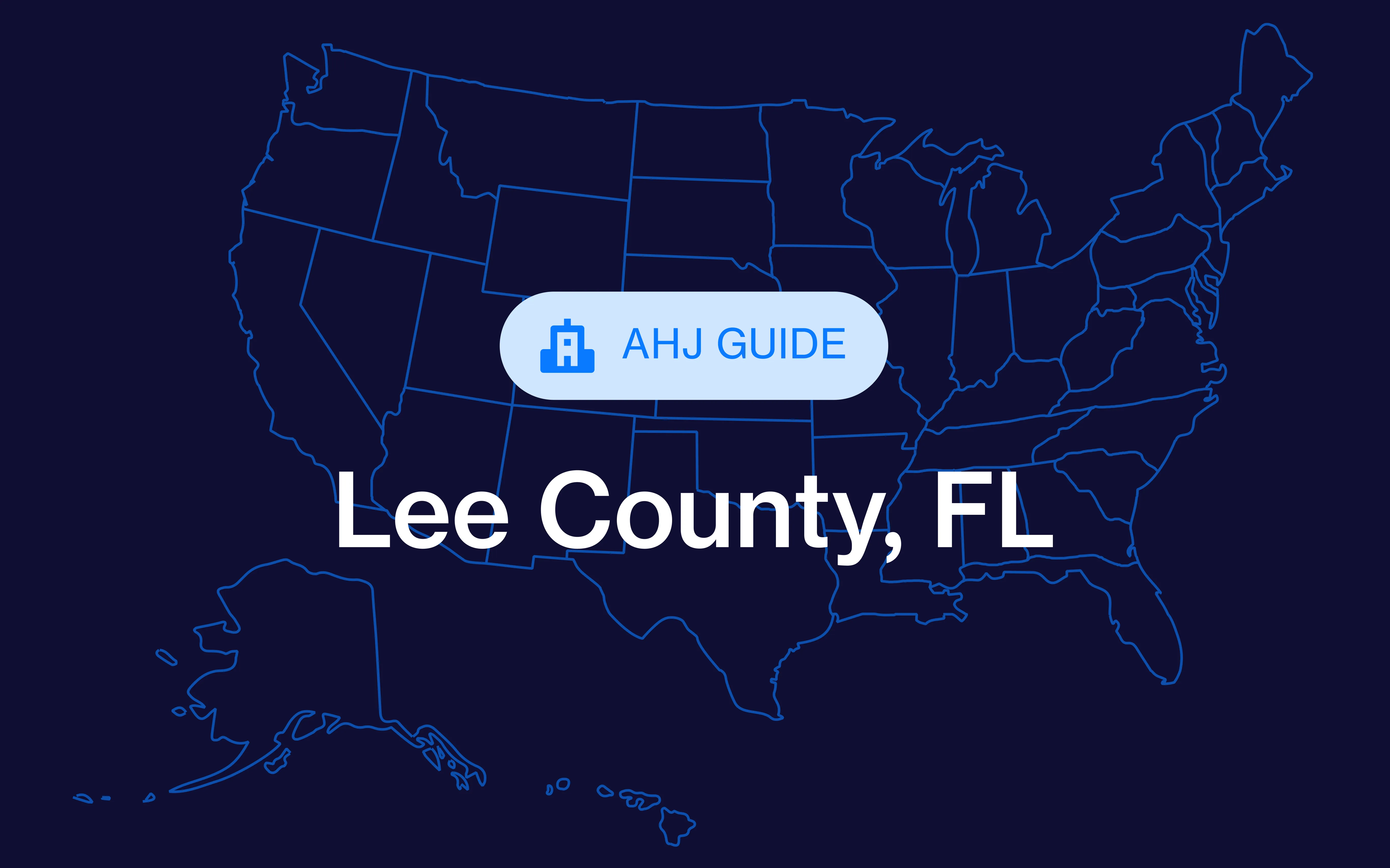Charlotte’s crane count shows no sign of slowing, but every new slab in North Carolina still starts with paperwork. This guide gives builders, contractors, and developers the need-to-know facts on pulling a Mecklenburg County building permit — from scope triggers to fee tables — so you spend less time on permitting and more time building (and growing your business!).
Pulling a permit in the City of Charlotte? Check out our Charlotte permitting guide.
Simplify permitting in Mecklenburg County with PermitFlow. Learn more.
What requires a building permit in Mecklenburg County?
The Code Enforcement division of the Mecklenburg County Land Use and Environmental Services Agency (LUESA) oversees permitting, plan review, and inspections throughout the county.
The county requires a permit for commercial and residential projects involving:
- New structures, additions, tenant build-outs, structural repairs, and demolition
- Any electrical, mechanical, or plumbing installation, alteration, or extension
- Site features such as pools, retaining walls, and accessory buildings
What doesn’t require a permit?
Purely cosmetic work — painting, flooring, or fixtures — doesn’t require a permit.
Mecklenburg County also doesn’t require a permit for work valued at less than $40,000 unless it involves:
- Load bearing structures
- Changing the design of a plumbing system
- Adding, replacing, or changing the design of an HVAC, plumbing, or electrical system
- Materials not permitted by the code
- Adding roofing (except when replacing like-grade fire resistance material)
Always confirm details with Code Enforcement before assuming your project doesn’t require a permit.
How big of a structure can I build without a permit in North Carolina?
State law allows a single-story accessory building ≤ 12 ft high and ≤ 200 sq ft without a permit, provided it is non-habitable and meets zoning setbacks. Anything larger—or any utility connection—requires a permit.
Do you need a permit to build a shed in Mecklenburg County?
Yes, if the shed exceeds 120 sq ft, ties into utilities, or violates local zoning setbacks. Smaller, detached sheds may proceed permit-free but might still require zoning compliance.
How long do building permits last in Mecklenburg County?
Permits expire if work has not started within 6 months or stops for 12 months. Extensions must be requested before the permit expires.
Check out Mecklenburg County’s Expired Permits FAQ to learn more.
Mecklenburg County building permit search
All active and closed Mecklenburg County construction permits are searchable in Accela Citizen Access (ACA) and, for legacy files, the Electronic Plan Management (EPM) viewer. Search by address, permit number, or contractor license for real-time status.
Note: As of April 24, 2025, Mecklenburg County has phased out POSSE Outrider (also known as the contractor dashboard) for residential projects.
Mecklenburg County building permit fees
The county calculates most fees from construction value, but several flat fees and surcharges matter to estimators. Use the county’s online permit fee estimator to get a ballpark figure, and consult the LUESA Fee Ordinance for the full schedule.
Building permit fees based on construction value:
Demolition permits
Common flat fees and surcharges:
Expedited plan review fees:
How to get a building permit in Mecklenburg County
Step 1: Determine permit requirements
Review the Mecklenburg County building permit requirements to pinpoint which permit(s) you need, and what’s required for those specific applications. Make note of necessary zoning requirements, department reviews, and inspections, too.
Code Enforcement will not open plan review until a zoning use permit is approved. Submit the Zoning Use Application (ZUA) in ACA and clear comments first.
Pro tip: For projects > 20,000 sf or any high-hazard occupancy, request a virtual pre-submittal. You’ll get confirmation on occupancy classification, special inspections, and required third-party reviews — saving a cycle later.
Step 2: Prepare your application
Once you know which permit(s) you need, it's time to start gathering documentation and putting it all together.
Core uploads you’ll likely need:
- Sealed architectural, structural, MEP, and civil sheets (24 × 36 or 30 × 42)
- Site plan with erosion-control narrative and stormwater calc sheet (if > 1 acre disturbed)
- Truss engineering, energy code compliance certificate, and special-inspector letters
- Contractors’ NC licenses and lien agent receipt (> $30 000 value)
Pro tips:
- Merge sheets by discipline; name files “A-Set_2025-05-16.pdf,” etc., to avoid version confusion.
- Run a PDF/A validation — ACA rejects non-compliant files.
Step 3: Submit your application
Most permit applications go through Mecklenburg County’s Accela Citizen Access portal. YOu’ll need to set up an account and log in to submit an application.
Select the correct permit type and upload all necessary documentation into the portal. ACA assigns a PR prefix number — save this number and share it with any consultants so all resubmittals reference the same record.
At this point, you’ll also have to pay any necessary Mecklenburg County permit fees.
Pro tip: The county has several customer guides available online to help you navigate the application process.
Step 4: Plan review
Once your fee clears, the package enters concurrent review. Several teams may evaluate the plans in parallel: Building, Electrical, Mechanical, Plumbing, Fire, Health, Land Development, and Backflow. Average turnaround is roughly 10 business days for projects under 10,000 sf and about 15 days for larger jobs.
During this phase, be sure to:
- Monitor comments: Open the Issues/Conditions tab in ACA to see red-line mark-ups from each agency in real time.
- Prepare a response package:
- Cloud-bubble every change on the revised sheets.
- Upload a sheet-by-sheet narrative that explains each fix.
- Re-submit the set.
- Avoid the third cycle: A third round triggers the hourly re-review fee ($145 per hour), so aim for a “clean” second submission.
Pro tip: Need to start work early? Once structural sheets are approved, request a foundation-only or early-shell permit through Amend Permit.
Step 5: Permit approval and inspections
When all review teams flip to Approved and the final invoice is paid, ACA releases:
- Digital placard (print and post on-site)
- Stamped drawings (inspectors will scan the barcode on each visit)
Now, you’ll need to schedule inspections.
- Schedule in ACA’s calendar or call 980-314-CODE by 3 p.m. for next-day slots.
- Combine multiple rough-in inspections in a single request to keep trades moving.
- Qualifying low-complexity re-inspections can use Live Remote Inspections (LRIs)
Mecklenburg County permitting resources
Contact information:
- Code Enforcement office: 2145 Suttle Ave., Charlotte, NC 28208
- Phone: 980-314-CODE
- Business hours: Mon-Fri 8 a.m. - 5 p.m.
- Email: Code@MeckNC.gov
Streamline permitting in Mecklenburg County with PermitFlow
Save time for your team and tackle more projects faster by ditching in-house permitting for PermitFlow.
PermitFlow pairs comprehensive yet easy-to-use software with local permitting experts to streamline the permitting process in every jurisdiction nationwide. Our user-friendly dashboard keeps every permit, plan review, and inspection on schedule.
Why construction businesses switch to PermitFlow:
- Up-front accuracy: Our permitting experts know the exact requirements for Mecklenburg County and beyond.
- One source of truth : Track all Mecklenburg County permitting tasks across projects without juggling spreadsheets or portal log-ins.
- Faster approvals: Cleaner submittals mean fewer comments, fewer resubmittals, and shorter review cycles.
- Nationwide reach: The same platform scales to every jurisdiction on your expansion map.
Ready to see the time savings? Talk with a PermitFlow expert to keep your projects moving.








